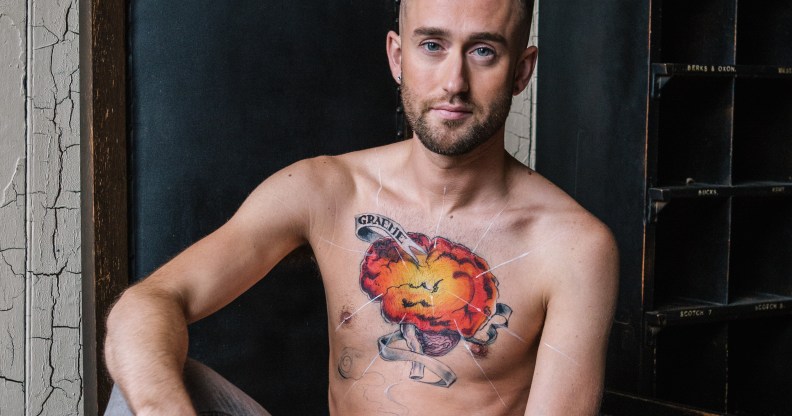Living with HIV? Tips to keep healthy while celebrating this summer

Graeme lives with HIV. He says it doesn’t need to be isolating. (Gilead)
Summer is coming! That means a lot of pressure to look beach body ready, and juggling lots of barbecues and cocktails.
If you are living with HIV you can enjoy a long, healthy life, but there may still be health challenges associated with HIV and its treatment, from diabetes to kidney problems to some cancers.
So, how can you feel healthy and fit, and still enjoy your summer?
Here are some of our top tips from people living with HIV:
Track your alcohol intake
If you’re prone to a prosecco in the summer, we’re right there with you—but too much alcohol can impact mental health and physical wellbeing.
Why not try an alcohol calculator to track how much you drink — and if you’re worried, speak to your healthcare advisor. Cutting down alcohol can help your mental health, liver and your kidneys.
“If you care about how HIV affects your body, then you have to care about your kidneys,” says Bisi Alimi, who is 43 and from Nigeria. He has been living with HIV for 13 years. “Raising awareness about kidney health is particularly important to me because it is more prevalent in both the African community and in people with HIV.”
Smoke less
Quitting smoking can be challenging, but cutting down or stopping altogether can reduce your chances of illnesses such as cancer. People living with HIV can have a weakened immune system, which means the risk of lung infection is higher too.
“I’ve struggled to stop smoking but I’m going to keep trying, as singing is important to me and I want to look after my lungs,” says 32-year-old Paolo Gorgoni from Italy.
Get moving
Getting more exercise doesn’t have to mean sweating it out on a treadmill or enduring a painful spin class, even going for regular walks can be hugely beneficial for your mental and physical health. Using an app to log your physical activity can help you keep track of how active you are, and you can take the data to your next healthcare appointment.
Graeme, 33, has been living with HIV for 5 years. “Being diagnosed with HIV can be traumatic and isolating,” he says. “There is a lot to come to terms with but you have to remember that you are not alone. There are many support services to help you untangle your thoughts and feelings – you just have to ask your healthcare team.”
Sleep well
From health worries to background noise, many people aren’t getting enough shut eye. If you’re struggling, try investing in blackout curtains, ear plugs, or even meditation before bed to help you sleep. You could also try a sleep tracking app to assess sleep quality and duration. If you still can’t sleep, your doctor can give you advice.

It’s important to take a proactive approach to HIV, says Axel (Gilead)
Preparing for your appointment
Preparing before your next appointment can be really helpful and the site Hivisjustapartofme.eu recommends bringing these four questions with you:
- Does living with HIV or any of my lifestyle factors put me at increased risk of diabetes/heart disease/kidney problems/bone problems/cancer/liver disease/lung disease/mental health issues?
- Do I need to make changes to my lifestyle or treatment choices?
- Can I be screened or tested for…?
- What signs or symptoms should I look out for?
You can also fill in this questionnaire to help you plan out questions to ask.
“When living with a long-term condition like HIV, it is important to take a proactive approach,” says Axel Vanderperre, 59.
“For me, constantly asking my healthcare team questions and doing my own research has been the key to making informed decisions about my health and ultimately enabled me to take ownership of my overall wellbeing.”
Visit Gilead’s disease awareness website HIV is: Just a part of me to find out more about staying healthy and happy.
Disclaimer: This article was written with support and funding from Gilead Sciences Europe Ltd.

